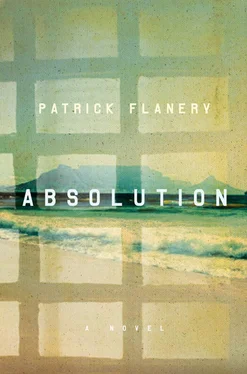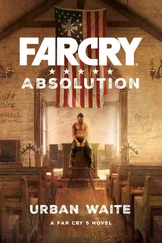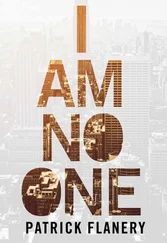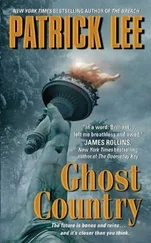Or do I imagine that hospitality? Did she keep us on the front porch, a screen separating her from us, a discreet hand tripping the lock on the door, which would not have been difficult to break down, not for the three of us, travelling for days with so little, so hungry and thirsty we could have broken through deadbolts. Or is that a false memory, too?
It’s her face behind the screen that comes to me. It’s the only thing I can see with any clarity. The rest I don’t know.
*
It’s possible that the conversation late on Friday has changed things between us. This Monday morning I sense that Clare and I have reached a new level of understanding, or at least that she’s beginning to trust me. She speaks more freely, so I return to questions about censorship, since those have produced her most fluent responses so far.
‘You’ve described the mental effect of living under the threat of censorship, but how did it specifically impinge on your writing?’
‘Quite simply, it acted as a constant distraction. Under such conditions, one cannot even begin to put pen to paper in the morning without weighing the implications of every letter, because the censoring mind, parsing and legalistic, looks for meaning even in spelling and punctuation. And that is when one knows that the censor has won, because, ultimately, what the censor most desires is not total control of information, but for all writers to self-censor.’
‘Did you?’
She draws herself up but her shepherd’s crook spine keeps her always somewhat stooped, vulture-like. How tall she must have been before her body began to turn on her. I remember that height from the past, and how it intimidated.
‘Yes and no. I never wanted to write the kinds of books they were inclined to censor. You know that. Protest is not difficult, neither is journalism; even good journalism today requires nothing more than a notebook, a recorder — look at you — and the ability to ask dogged questions of someone who does not want to answer, or else merely to observe the world and describe it with insight or a particular point of view. People will always write protest novels and reportage and pornography. One might argue that the tyranny of the censor fuelled my writing as much as defined its parameters. The body of my work is at least in part a product of the place the censor held in my own imagination.’
‘Was the censor embodied in your imagination?’
‘Why?’ She looks startled; the question seems to catch her by surprise.
‘I wondered if you envisioned the censor as a person, rather than an abstraction, or a worm, as you said last week.’
‘Yes, I did,’ she says — no hesitation now.
‘Would you care to say what he, or she, looked like?’
‘Why?’
‘Curiosity.’
‘The censor looked like me. She was an internal doppelgänger, hovering just behind me with a blue pencil, poised to attack. I often thought that if I was very still, writing at my desk, and turned around suddenly, I might see her there, just behind me. You will think me insane,’ she says, sounding amused by her own confession. ‘It is a good question, you know. No one has ever asked me that. I called her Clara — the censoring half of my mind. Not half — maybe quarter or eighth, the little bit I allowed her to occupy, the bit she claimed.’
‘Clara?’
‘It sounded smug to me. A smug little housewife censor who thinks she knows what literature is. The fear I’ve always had—’ She stops and raises her hands. ‘Turn off your recorder.’ I switch it off and put down my pencil. ‘The fear … I’m just a smug little housewife who thinks she knows what literature is. Unlike you, I have no doctorate. I belong to a generation of academics who could build a career on a first degree alone, and a generation of writers who did not go to school to learn how to tell stories. Often I wonder how much of Clara I have let take over. More than an eighth? More than half?’ She holds my gaze, shaking her head. ‘I don’t know, you know, that’s the thing.’
The gardener, who seems to be here every day, draws her attention away from me. ‘What does one do with a man like that? I certainly don’t know what to do. I don’t want to be thought rude, even by him. Especially by him, I mean — by someone like him. I don’t want to be like my mother was. I don’t want to be the imperious white madam who can’t help being an autocrat with the servants. Even that, you know — I’m aware what I give away in calling them servants instead of staff . Don’t think I don’t know. But what is one to do? This is life on the feudal estate. I want to tell him to go away and not come back. Fire him as Americans say — such a violent way of ending a professional relationship, burning the terminated, or firing upon them, executing them. But I don’t know how to fire him. My mother never taught me how to terminate a relationship — any kind of relationship. What is one to do? If I fired him, how many lives would I imperil?’
I shake my head and hunch my shoulders. ‘I don’t have any experience of staff. I wouldn’t have any idea how to terminate a relationship. I’ve never been in a position of authority over another person.’
‘I’m not sure I believe that,’ she says, glancing back at me. ‘All right, let’s get back to it. You may turn on your recorder thingy again, darling.’ Do I imagine the darling ? No, I hear it distinctly. It’s the word I’ve been waiting for that I didn’t know I needed to hear. My chest is a hot flood. Darling, darling . I shuffle papers to kill time and fiddle with the recorder. Darling . I try to find my composure.
I invent a question.
‘Do you think other writers in this country imagined themselves as their own censors?’
‘How should I know? Ask them,’ she says coolly, and it’s as if the conversation of a few seconds ago never happened. It was off the record. The record is something separate. It’s a different register and another kind of contract. There is no room on the record for darling .
The sun flashes into the room, reflecting off the windows of a neighbouring house. She draws the blinds and returns to her desk, again to shuffle papers, as though it’s a code we’ve agreed: to shuffle papers is to buy time. It isn’t about pretending to be otherwise occupied, or at least this is how I begin to interpret it. Without looking up at me she speaks.
‘Don’t you want to ask me about my childhood?’ Three fingers pull the hair away from her face on one side.
I want to hear her call me darling again, that’s what I want. I want her to hug me at the end of each meeting, pat my head, tell me I’m doing a good job. She teases me with a photo of her as a girl, on a horse, somewhere on a farm in the Karoo.
‘I thought there were no clues to your fiction in your own life,’ I say, trying to tease back.
‘That is true, but you are writing a biography, are you not? Should we not be talking about my life instead of my work? Or what kind of biography is this?’
‘As you’ve said, much of your life is a matter of public record.’
‘If not my own life, then the lives of those around me.’
We spend a further two hours talking about the themes of her works, historicizing the texts, exploring obvious resonances with her own life that even she is willing to acknowledge, while asserting the process of mystification and mythification she undertook to make the personal more complex and more significant than mere autobiography . Her words, not mine.
At one o’clock Marie taps once on the door, doesn’t wait for Clare’s reply, and wheels in a cart bearing two covered trays. Placing each tray on the low coffee table in the middle of the room, she removes the covers: sandwiches, a selection of salads. She bows (is that my imagination?) and wheels the cart from the room, closing the door behind her.
Читать дальше












